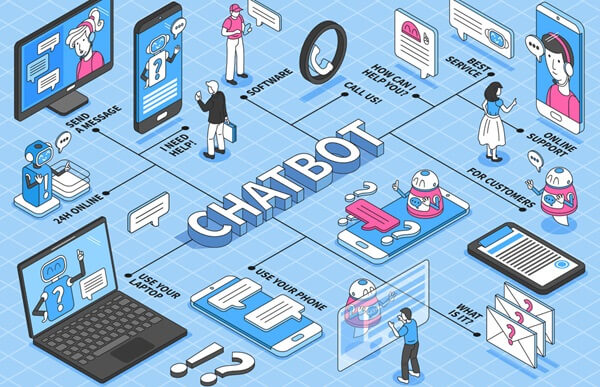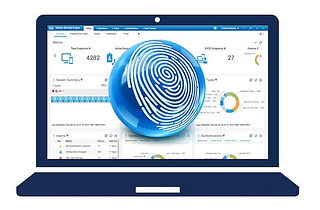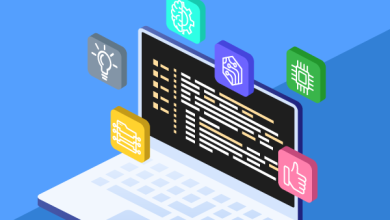The Role of AI in Enhancing Group Chat Applications

Effective communication within teams is crucial for success in the fast-paced digital age. Group chat applications have become indispensable tools for businesses, enabling real-time collaboration and instant information sharing among team members, regardless of their geographical locations. With the increasing reliance on these tools, the integration of Artificial Intelligence (AI) into group chat applications is revolutionizing how teams communicate, making interactions more efficient and productive.
Group chat applications like AI-powered Clariti, Slack, Microsoft Teams are at the forefront of this transformation. AI enhances these platforms by automating routine tasks, providing intelligent insights, and ensuring that communication remains contextually relevant. For instance, AI can analyze chat history to suggest relevant documents or previous conversations, reducing the time spent searching for information and improving decision-making processes. According to a study by McKinsey, businesses that effectively utilize AI in their operations can increase productivity by up to 40%.
Moreover, AI-powered group chat applications can facilitate better project management by tracking deadlines, sending reminders, and even predicting potential bottlenecks based on historical data. This proactive approach helps teams stay on track and meet their objectives more efficiently. Additionally, AI can enhance the user experience by providing language translation in real-time, enabling seamless communication among diverse teams. A report by Gartner predicts that by 2024, AI-driven systems will handle 69% of routine managerial work, further emphasizing the importance of AI in modern workplace communication.
The benefits of integrating AI into group chat applications are not limited to productivity alone. AI can also play a crucial role in improving employee engagement and satisfaction. By analyzing communication patterns, AI can identify employees who may be disengaged or struggling with workload, allowing managers to address these issues proactively. This personalized approach can lead to a more motivated and cohesive team.
As businesses continue to embrace remote work and global collaboration, the role of AI in enhancing group chat applications will only grow. In the subsequent sections, we will explore how AI is transforming group chat applications, providing practical tips for leveraging these technologies, and examining the potential challenges and solutions. This comprehensive guide will help organizations harness the power of AI to enhance their group chat experiences and drive success in the digital workplace.
10 ways AI is transforming group chat applications
1. AI-powered chat conversations
Clariti leverages AI to enhance group chat applications by integrating various communication channels, such as emails, chats, documents, calendar events, and social media feeds, into a unified, context-rich conversation. This integration ensures that users have all relevant information in one place, reducing the need to switch between multiple platforms. For example, Clariti’s AI can link related emails and chats, creating a coherent thread that helps team members understand the full context of a discussion. This not only improves efficiency but also enhances collaboration by keeping everyone on the same page.
2. Smart Message Routing
AI in group chat applications enables smart message routing, ensuring that the right messages reach the right people at the right time. For instance, AI algorithms can analyze the content and context of a message to determine which team members should receive it. This reduces unnecessary noise and improves the efficiency of communication. An example is Microsoft Teams, which uses AI to filter and prioritize messages based on user preferences and activity patterns.
3. Automated Meeting Scheduling
Scheduling meetings can be a cumbersome process, especially in a remote work environment. AI-powered group chat applications like Slack integrate with calendar apps to automatically find the best meeting times for all participants. AI can analyze each participant’s availability, preferences, and time zones to suggest optimal meeting slots, thereby streamlining the scheduling process and reducing back-and-forth emails.
4. Real-time Language Translation
In global teams, language barriers can hinder effective communication. A few AI-powered group chat applications are offering real-time language translation features. These tools use AI to translate messages instantly, allowing team members who speak different languages to communicate seamlessly. This fosters inclusivity and enhances collaboration across diverse teams.
5. Contextual Responses
AI enhances group chat applications by providing contextual responses. For example, some AI-powered group chat applications are offering relevant replies based on the conversation’s context. This feature saves time and effort by allowing users to respond quickly with AI-suggested replies that fit the ongoing discussion. This helps maintain the flow of conversation and reduces response time.
6. Enhanced Search Functionality
Finding specific information in a sea of messages can be challenging. AI improves search functionality in group chat applications by understanding the context and intent behind search queries. Some AI-based tools are providing more accurate and relevant search results. Users can quickly locate past conversations, shared documents, and important information, boosting productivity and efficiency.
7. Task Automation
AI can automate repetitive tasks within group chat applications, freeing up time for more important work. For instance, AI-powered bots in some tools can automate tasks such as setting reminders, creating to-do lists, and tracking project progress. By integrating task management with communication, these bots enhance productivity and streamline workflow.
8. Sentiment Analysis
Understanding the tone and sentiment of team communications can be valuable for managers. A few AI-powered group chat applications use sentiment analysis to gauge the mood of conversations. This helps managers identify potential issues, such as team dissatisfaction or conflicts, and address them proactively. Sentiment analysis can also guide managers in providing timely support and feedback to team members.
9. File and Data Management
AI simplifies file and data management in group chat applications. AI algorithms can automatically categorize and tag shared files, making it easier to organize and retrieve them. For example, some tools use AI to suggest relevant channels and threads for file sharing, ensuring that information is stored in the right context. This improves accessibility and reduces the time spent searching for documents.
10. Personalized User Experience
AI tailors the user experience in group chat applications by learning from user behavior and preferences. Some applications use AI to personalize notifications, suggesting the most relevant conversations and activities to each user. This customization ensures that users stay informed about important updates while minimizing distractions from less relevant information.
11. Virtual Assistants and Chatbots
AI-powered virtual assistants and chatbots are becoming integral to group chat applications. These intelligent agents can handle a variety of tasks, such as answering frequently asked questions, providing technical support, and even facilitating team onboarding. For instance, a few tools include AI-driven bots that can assist with project management tasks, query databases for information, and schedule meetings. By automating routine tasks, virtual assistants free up human resources to focus on more complex and creative work.
12. Enhanced Data Security
AI enhances data security in group chat applications by identifying and mitigating potential threats in real-time. AI algorithms can detect unusual patterns or behaviors that might indicate a security breach or data leak. Some applications utilize AI for continuous monitoring and threat detection, ensuring that sensitive information shared in group chats remains secure. This proactive approach to security helps protect against cyber-attacks and ensures compliance with data protection regulations, providing peace of mind for businesses and their employees.
Conclusion
AI-powered features are revolutionizing group chat applications, making them more efficient, secure, and user-friendly. By integrating capabilities like virtual assistants, chatbots, and enhanced data security, these tools are helping businesses improve communication, streamline workflows, and protect valuable information.
Tools like AI-powered Clariti, with its comprehensive approach to integrating various communication channels, exemplifies the potential of AI to transform how teams collaborate and communicate.
Read More:
- The Role of Industrial Process Pumps in Modern Manufacturing
- Unleashing the Power of Knowledge Base Software: Top Benefits and Features
- Car Rental in Richwood Texas Invest.Rakyat
- The Blueprint of Tomorrow Advanced Strategies for Building Modern Websites
- Managing Agile Projects and Work Items in Azure DevOps














